The 70s and 80s were a golden age for British music, with bands that shaped not just the sound of a generation, but the very culture of the UK. From the grimy pubs of London to the industrial heartlands of Manchester, these decades saw an explosion of creativity that still echoes today. Whether you were a punk rocker, a new romantic, or just someone who liked to bop along to Top of the Pops, chances are your memories are set to a soundtrack by one of these bands. So dust off your vinyl collection, dig out those old concert tickets, and join us on a nostalgic journey through 21 of the most iconic British bands of the 70s and 80s.
The Beatles
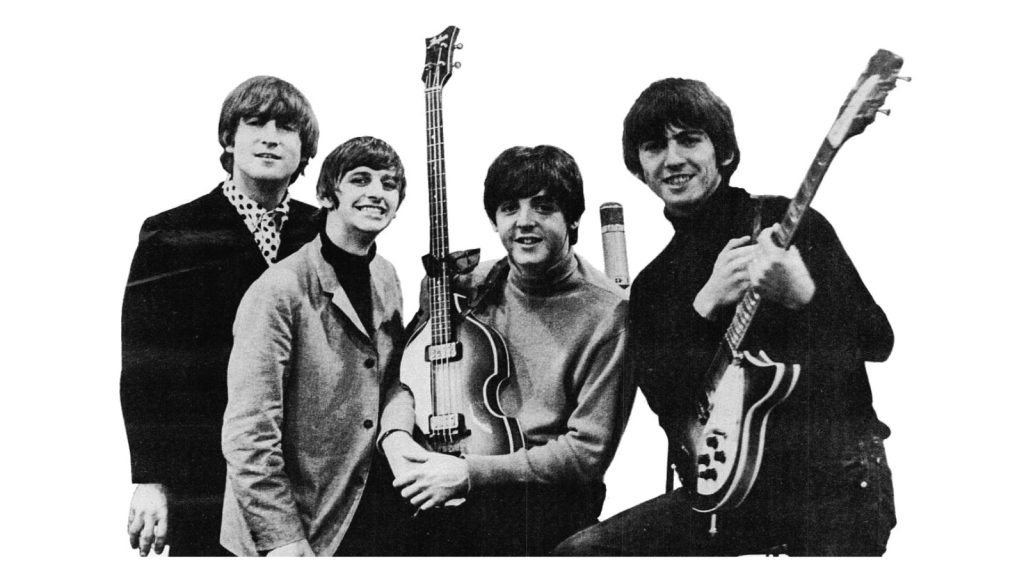
Alright, we’re cheating a bit here as they broke up in 1970, but you can’t talk about British music without mentioning the Fab Four. Their influence stretched well into the 70s and beyond. From “Let It Be” to their solo careers, the Beatles’ legacy continued to shape music throughout these decades. The band’s innovative studio techniques and songwriting prowess set the bar for all British bands that followed.
Queen
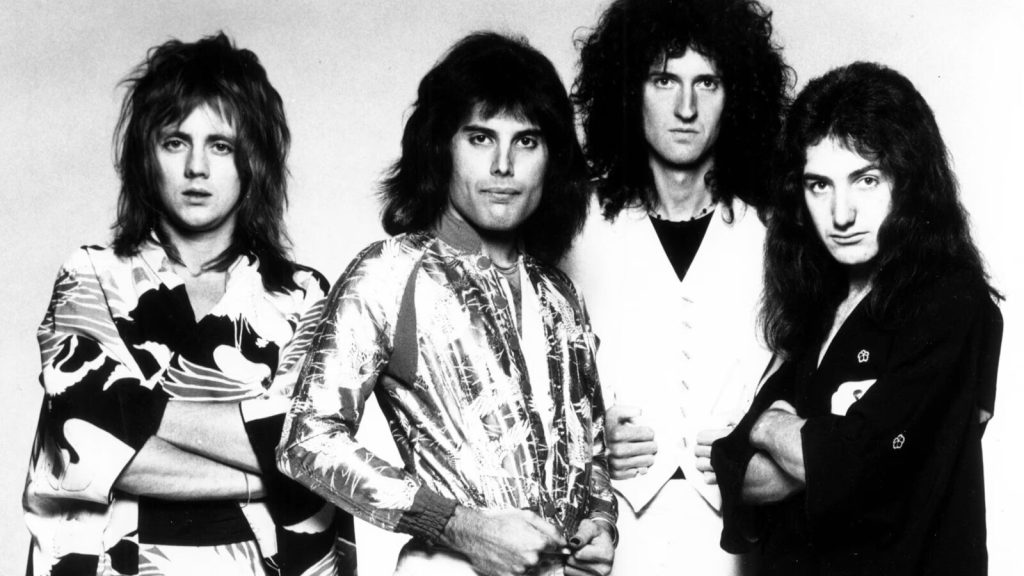
Freddie Mercury and the lads burst onto the scene in 1970 with a unique blend of rock, opera, and pure showmanship. Hits like “Bohemian Rhapsody” and “We Will Rock You” became anthems for a generation. Their 1985 Live Aid performance is still considered one of the greatest live shows ever. Queen’s ability to genre-hop, from hard rock to disco, showcased their versatility and cemented their place in music history.
The Rolling Stones
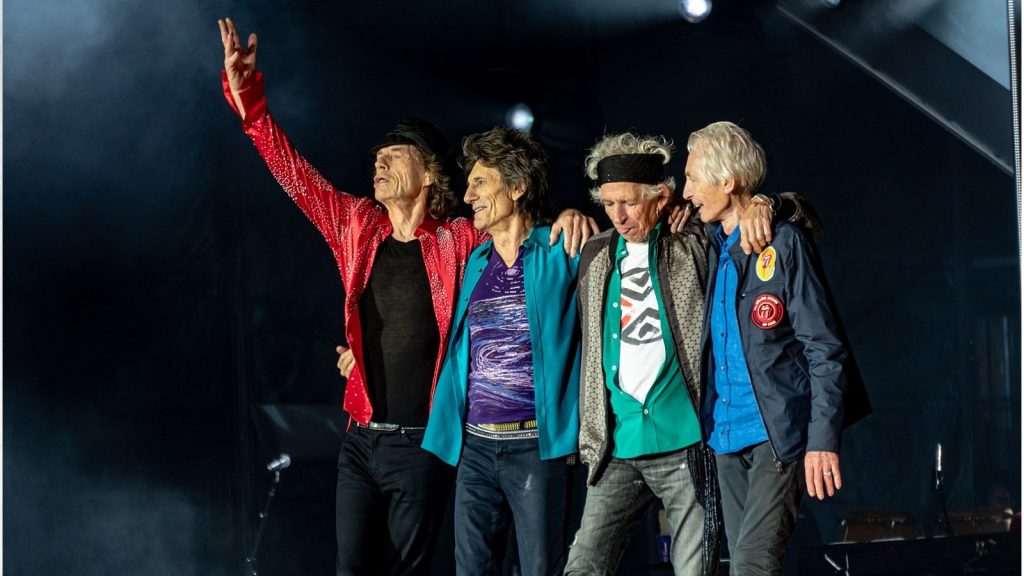
These bad boys of British rock continued to strut their stuff through the 70s and 80s. With Mick Jagger’s iconic moves and Keith Richards’ unforgettable riffs, the Stones gave us classics like “Brown Sugar” and “Start Me Up”. They proved that rock ‘n’ roll had no age limit. The Stones’ longevity and continued relevance make them one of the most enduring acts in rock history.
Led Zeppelin
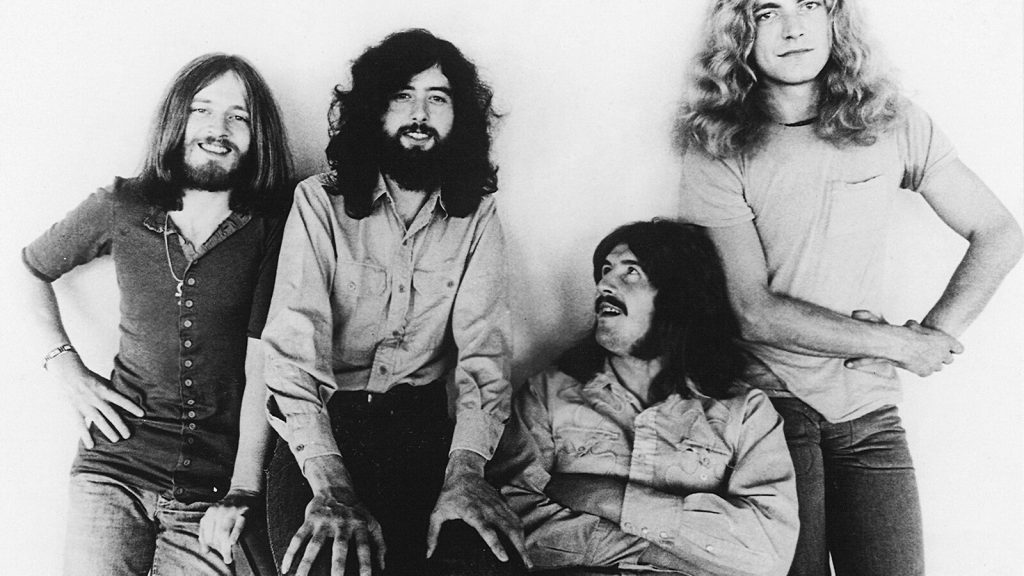
The titans of hard rock dominated the 70s with their heavy riffs and mystical lyrics. “Stairway to Heaven” became the ultimate slow dance song at every school disco. Despite breaking up in 1980, their influence continued to be felt throughout the decade. Led Zeppelin’s fusion of blues, folk, and hard rock created a template for countless bands to follow.
Pink Floyd
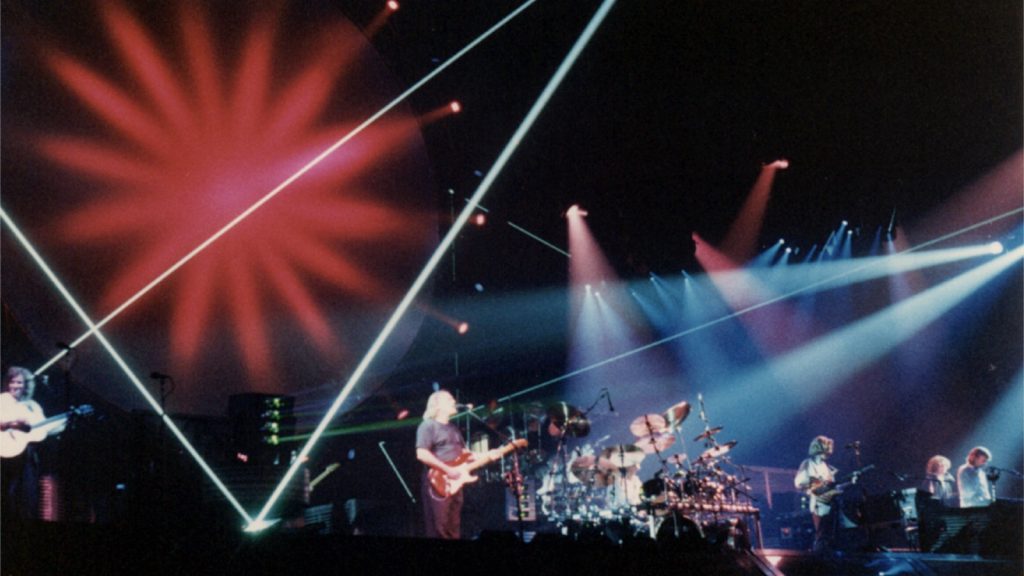
From psychedelic beginnings to progressive rock mastery, Pink Floyd’s concept albums defined the 70s. “The Dark Side of the Moon” and “The Wall” weren’t just albums, they were experiences. Their trippy live shows were the stuff of legend. Pink Floyd’s exploration of themes like alienation and mental illness in their music added depth to rock that was rarely seen before.
The Who
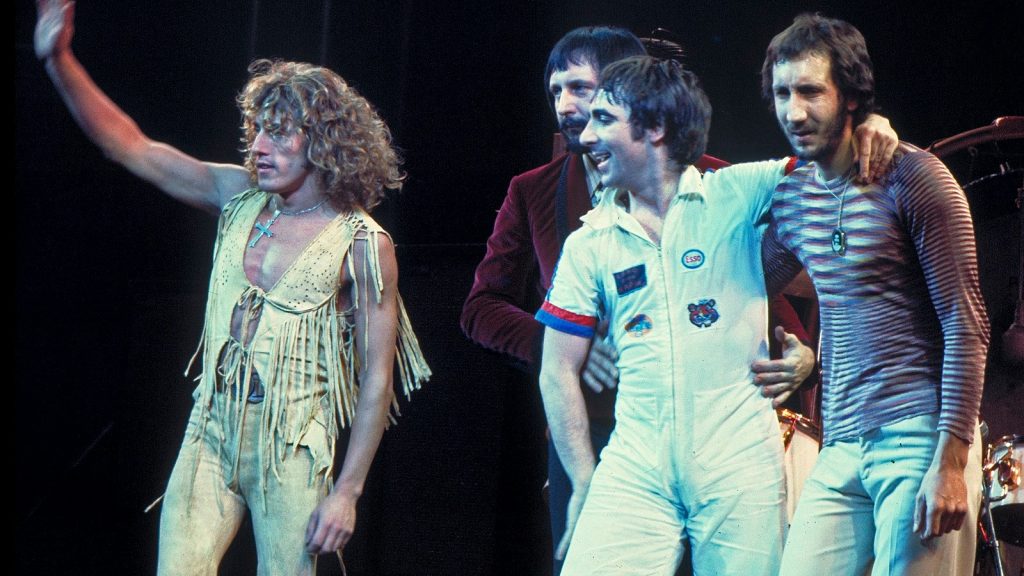
Pete Townshend’s windmill guitar moves and Roger Daltrey’s microphone twirling made The Who one of the most dynamic live acts of the era. Their rock operas “Tommy” and “Quadrophenia” pushed the boundaries of what rock music could be. The Who’s raw energy and ambitious storytelling influenced both punk and progressive rock movements.
The Clash
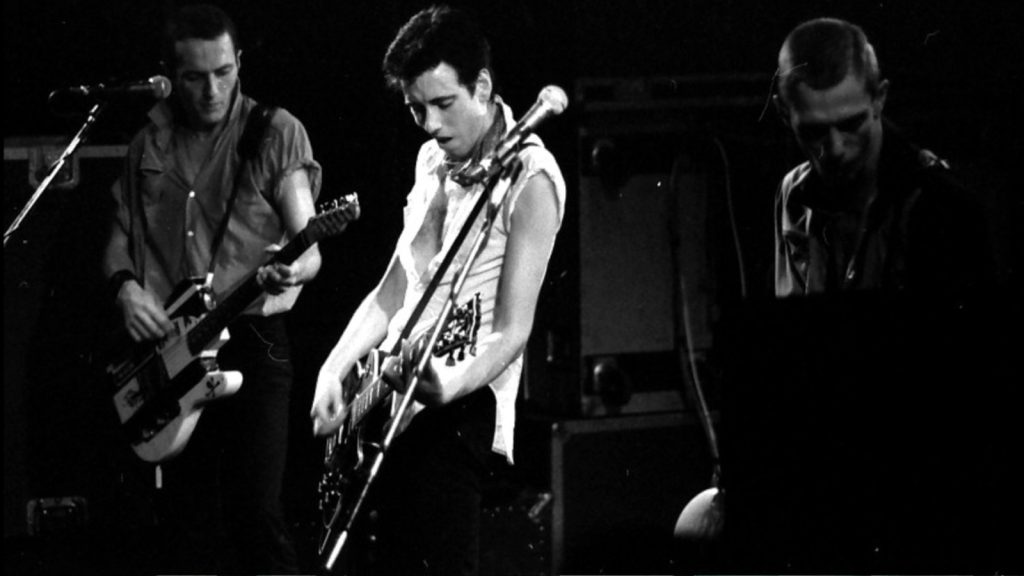
The self-proclaimed “Only band that matters” brought punk to the masses in the late 70s. Joe Strummer and co. mixed punk, reggae, and rock to create a sound that was uniquely their own. “London Calling” became an anthem for a generation of disaffected youth. The Clash’s political lyrics and multicultural influences set them apart from their punk peers and inspired a generation of socially conscious musicians.
Sex Pistols
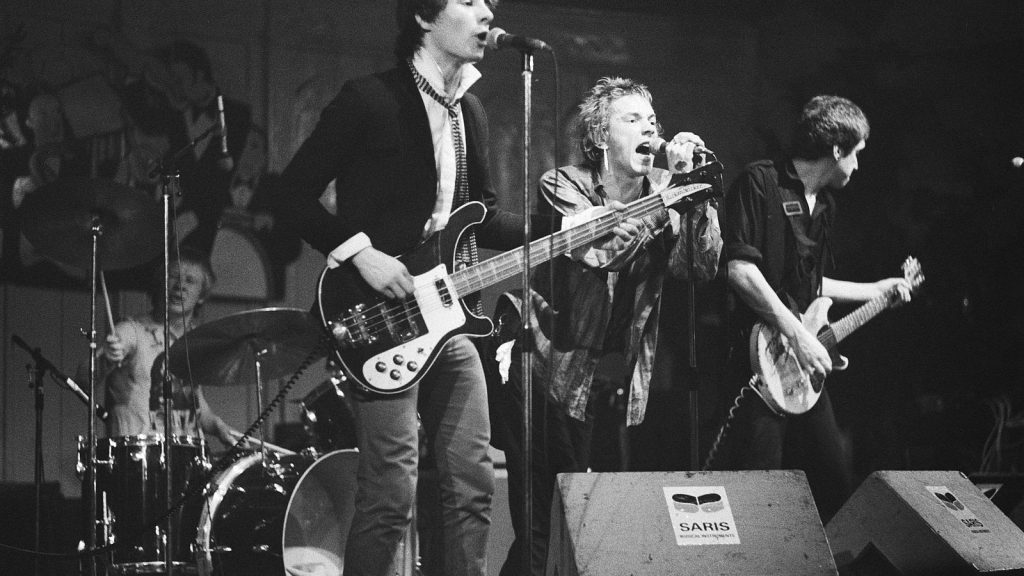
They may have only released one studio album, but the Sex Pistols’ impact on British culture was seismic. Johnny Rotten’s snarling vocals and Sid Vicious’ legendary antics defined the punk aesthetic. Their appearance on Bill Grundy’s show shocked the nation and made them household names. The Sex Pistols’ DIY ethos and anti-establishment attitude inspired countless bands and subcultures.
The Jam
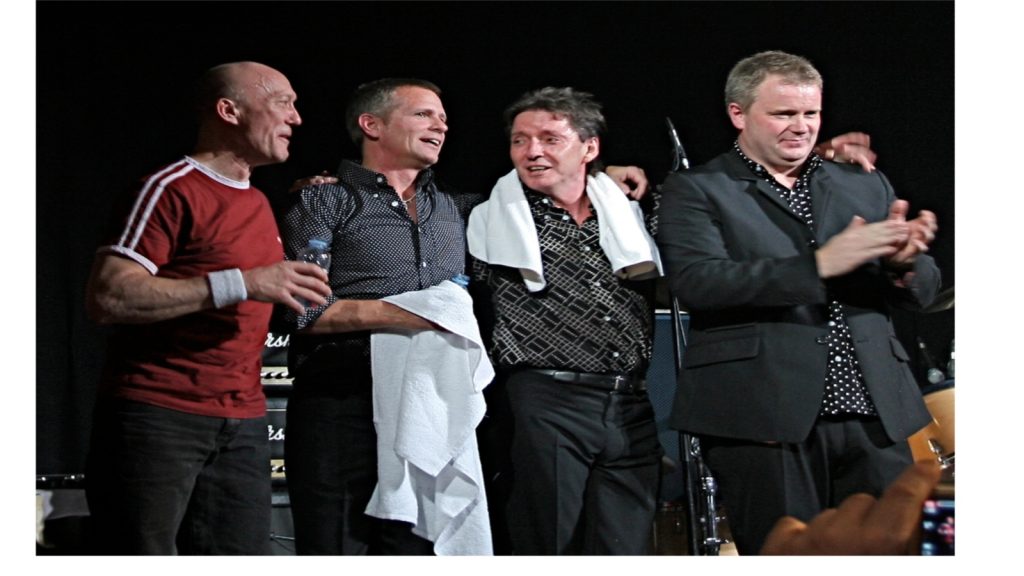
Paul Weller’s mod revival band captured the spirit of working-class Britain in the late 70s and early 80s. Songs like “Town Called Malice” and “Going Underground” spoke to the frustrations of Thatcher’s Britain. The band’s sharp suits and even sharper lyrics made them icons of the era. The Jam’s blend of punk energy with pop sensibilities paved the way for the Britpop movement of the 90s.
Joy Division
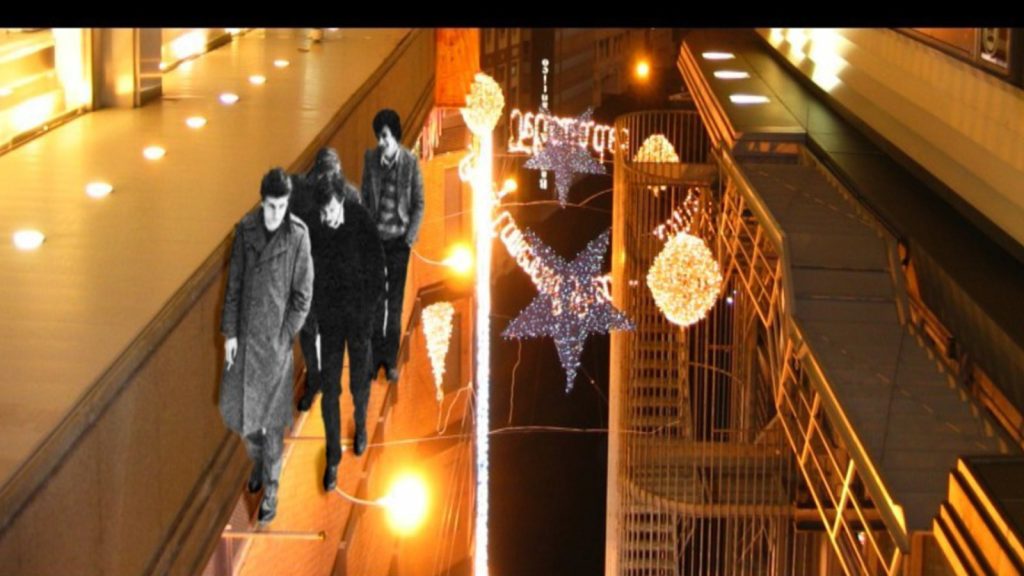
Manchester’s post-punk pioneers created a haunting, atmospheric sound that influenced countless bands. Ian Curtis’s intense performances and tragic death cemented the band’s legendary status. Their transition into New Order after Curtis’s passing showed their musical versatility. Joy Division’s dark, introspective sound helped define the post-punk genre and influenced alternative rock for decades to come.
The Smiths
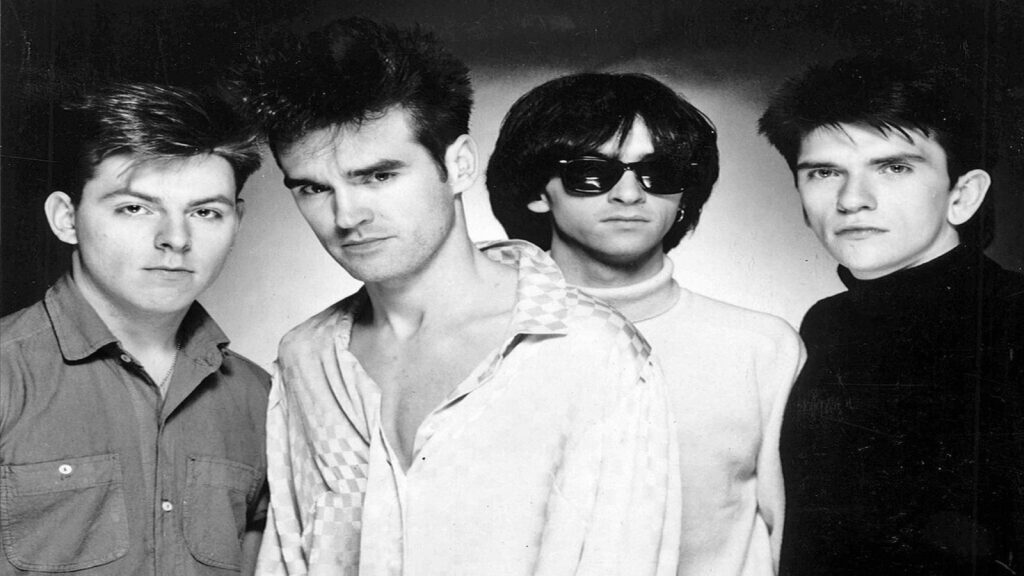
Morrissey’s witty, melancholic lyrics and Johnny Marr’s jangly guitar work made The Smiths the defining indie band of the 80s. Songs like “This Charming Man” and “How Soon Is Now?” became anthems for sensitive souls everywhere. Their influence on British guitar music can still be heard today. The Smiths’ celebration of outsider culture and British nostalgia created a template for indie rock that persists to this day.
Duran Duran
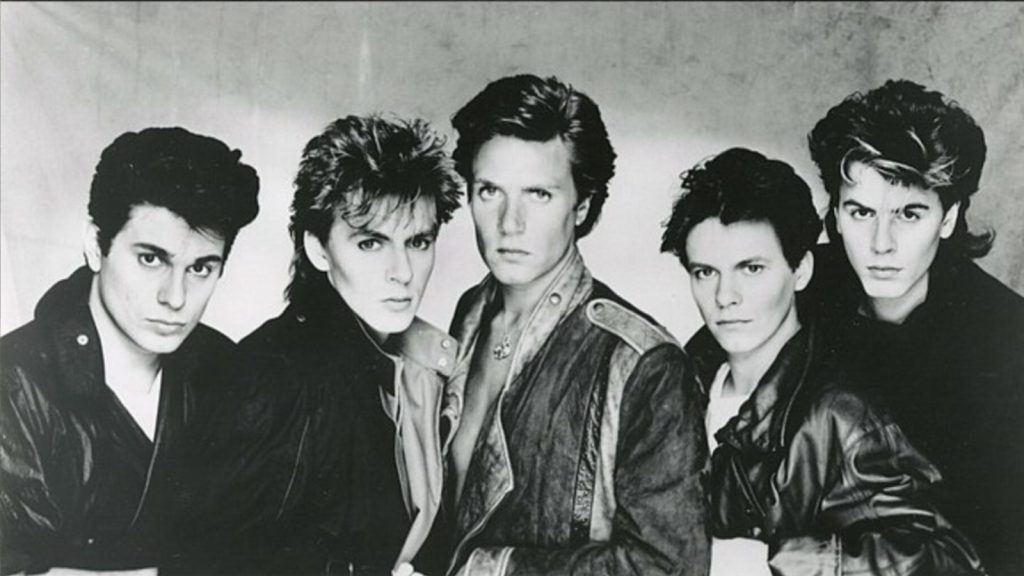
The pretty boys of the New Romantic movement, Duran Duran brought glamour and catchy synth-pop to the masses. Their exotic videos on MTV made them global superstars. Hits like “Rio” and “Hungry Like the Wolf” are still guaranteed to fill any 80s disco dancefloor. Duran Duran’s fusion of art school aesthetics with pop sensibilities helped define the look and sound of the early MTV era.
The Police
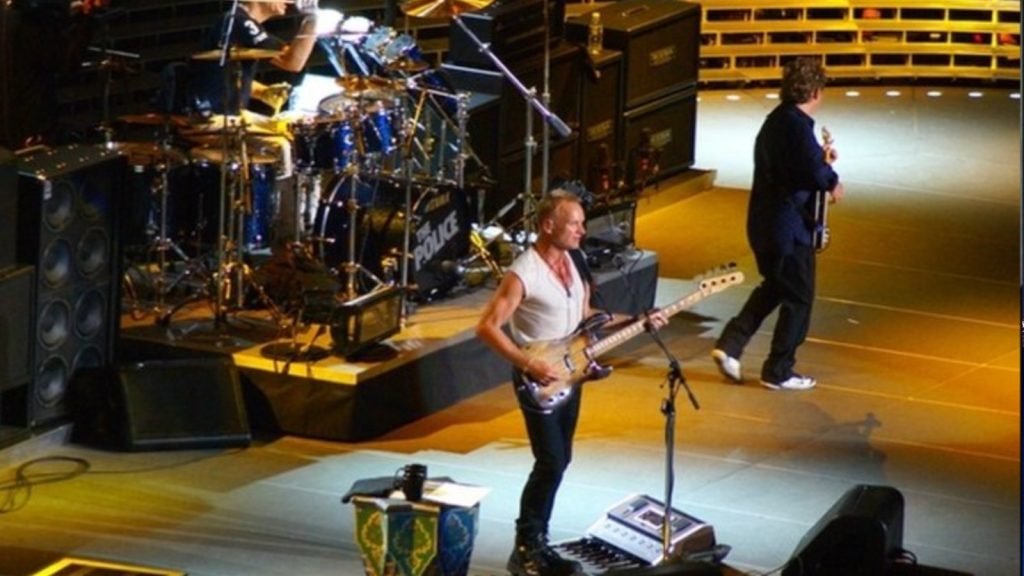
Sting, Andy Summers, and Stewart Copeland blended punk, reggae, and pop to create a unique sound. “Every Breath You Take” became one of the biggest hits of the 80s. The band’s acrimonious split at the height of their fame only added to their mystique. The Police’s sophisticated musicianship and global influences helped elevate pop-rock to new levels of complexity.
Depeche Mode
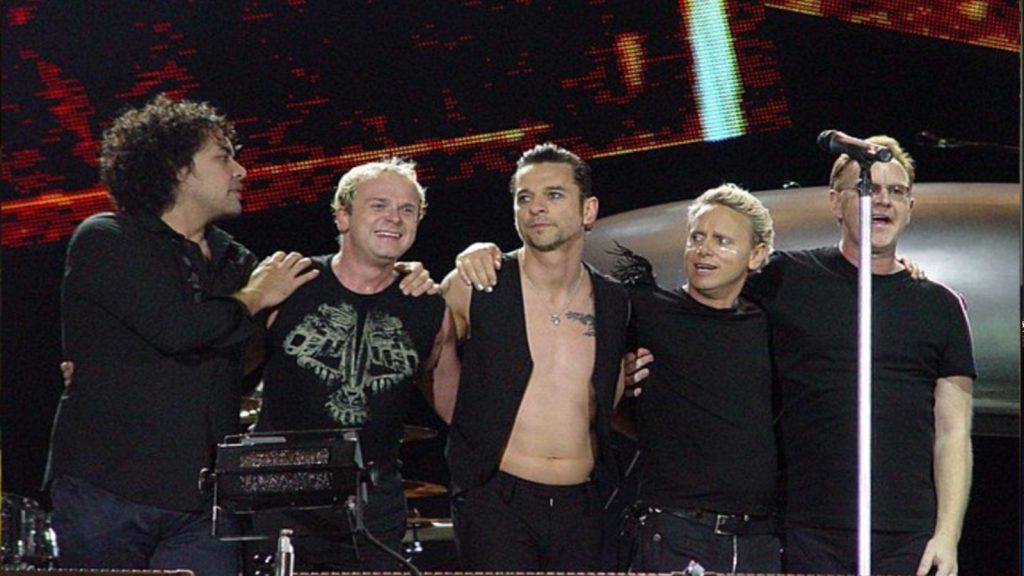
These Basildon boys evolved from bouncy synth-pop to darker, more complex electronic music throughout the 80s. Albums like “Violator” pushed electronic music into new territories. Their devoted fanbase made them one of the biggest bands in the world by the end of the decade. Depeche Mode’s exploration of sexual and religious themes in their lyrics added a depth to electronic pop that was rare at the time.
The Cure
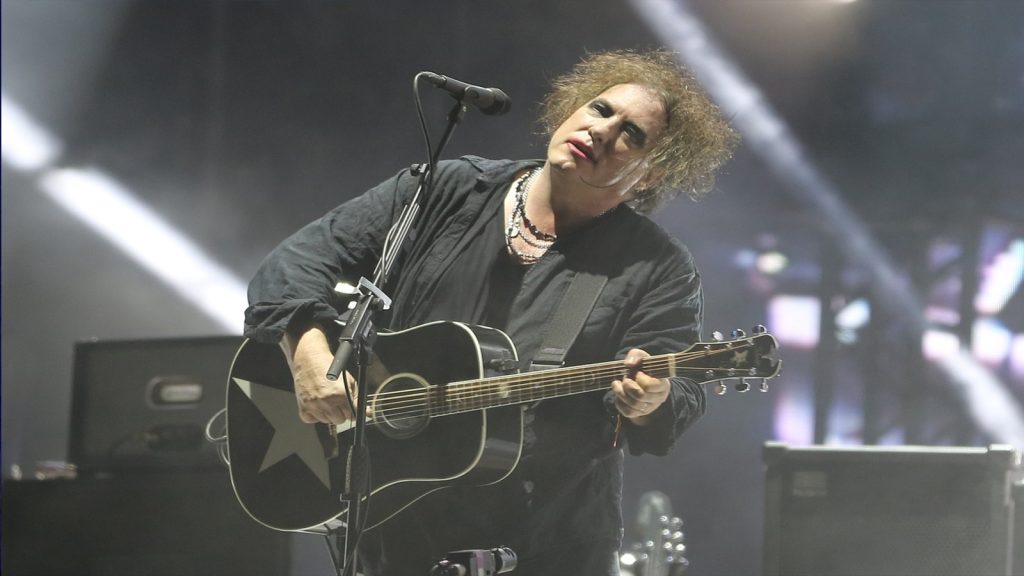
Robert Smith’s gothic rock outfit defined alternative music in the 80s. From the dark introspection of “Pornography” to the pop perfection of “In Between Days”, The Cure showed incredible range. Smith’s backcombed hair and smeared lipstick became an iconic look of the era. The Cure’s ability to balance commercial success with artistic integrity made them role models for alternative bands worldwide.
Iron Maiden
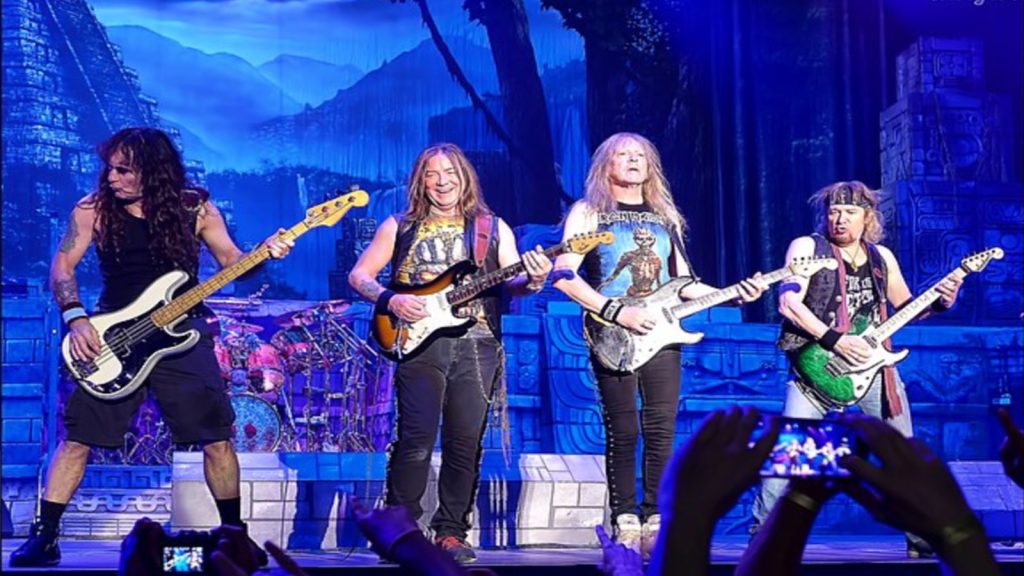
The standard-bearers of the New Wave of British Heavy Metal, Iron Maiden brought epic storytelling and theatrical live shows to metal. Their mascot, Eddie, became as recognizable as the band members themselves. Songs like “Run to the Hills” and “The Trooper” are still headbanger favourites. Iron Maiden’s complex compositions and historical themes elevated heavy metal, proving it could be both intelligent and hard-hitting.
Siouxsie and the Banshees
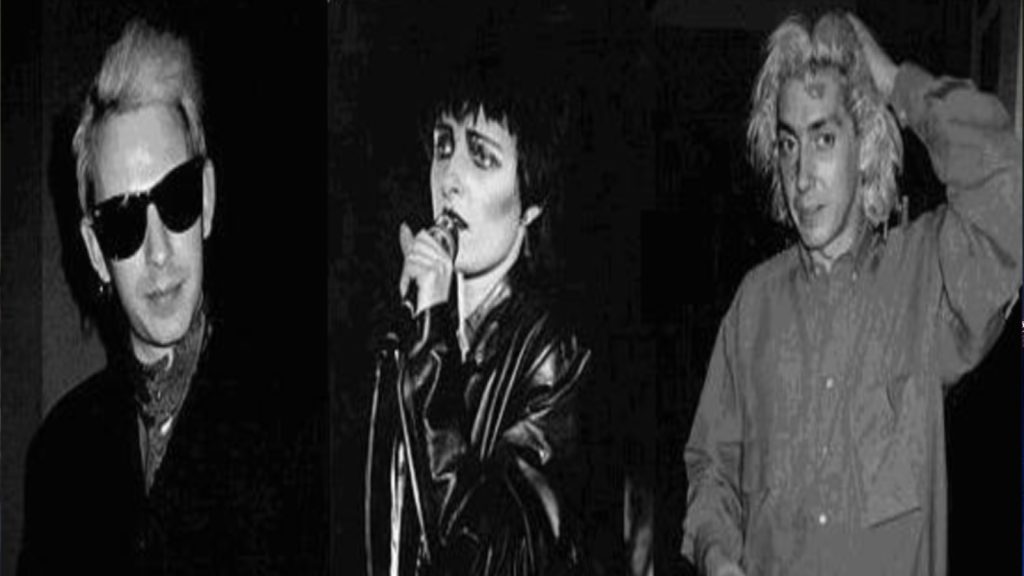
Emerging from the punk scene, Siouxsie Sioux’s band developed a dark, swirling sound that influenced goth and alternative rock. Siouxsie’s striking image and powerful voice made her an icon for generations of alternative music fans. Their cover of “Dear Prudence” became one of their biggest hits. The Banshees’ experimental approach to post-punk, incorporating elements of psychedelia and world music, set them apart from their peers.
The Human League
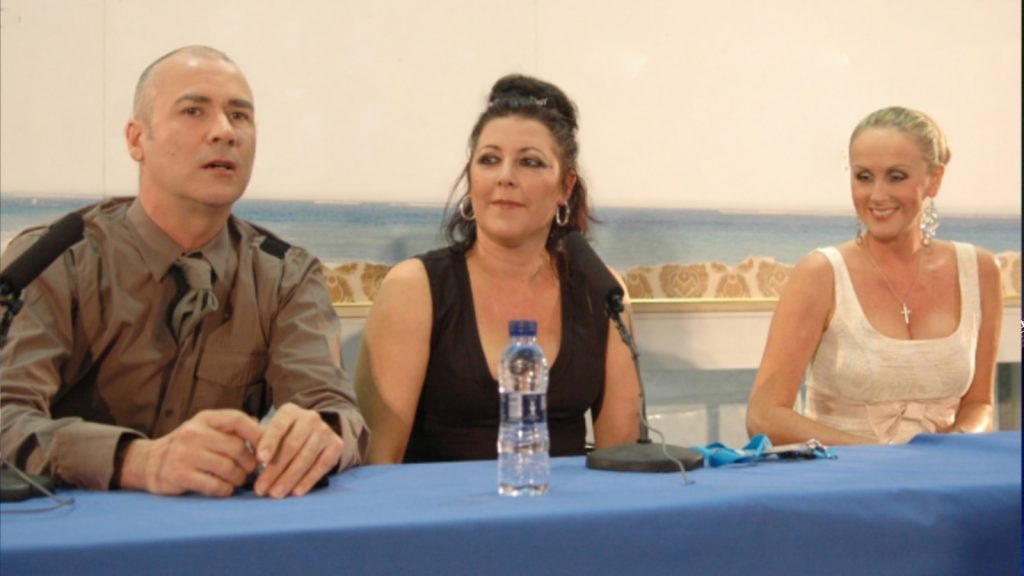
These Sheffield synth-poppers went from experimental electronic music to chart-topping pop stars. “Don’t You Want Me” was the Christmas number one in 1981 and remains a staple of 80s nights everywhere. Their use of female vocalists and electronic drums helped define the sound of 80s pop. The Human League’s journey from avant-garde electronic outfit to pop superstars mirrored the broader evolution of British music in the early 80s.
Tears for Fears
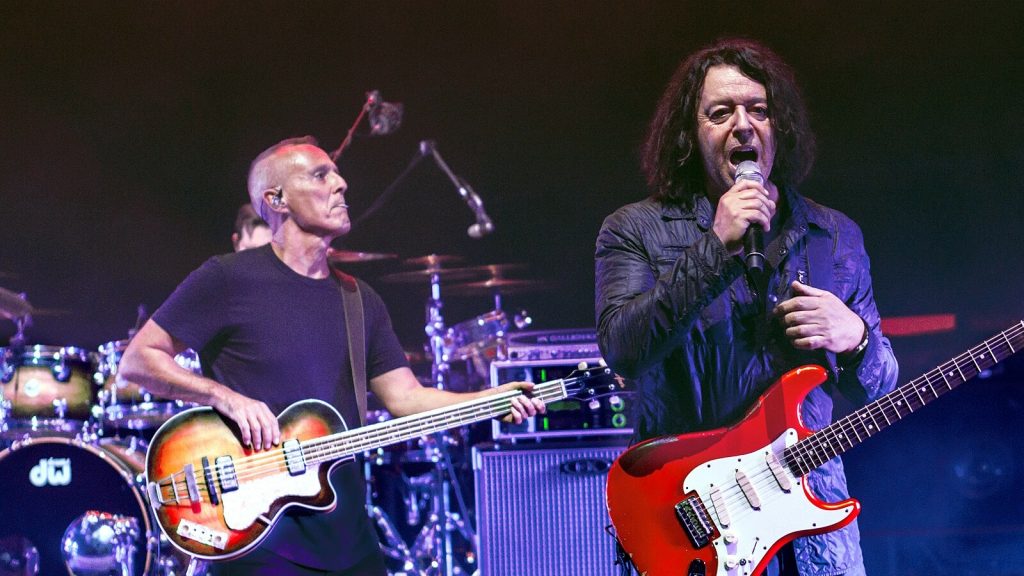
Roland Orzabal and Curt Smith created some of the most ambitious and memorable pop of the 80s. “Everybody Wants to Rule the World” and “Shout” were massive global hits. Their combination of catchy melodies and psychological depth set them apart from many of their peers. Tears for Fears’ incorporation of primal therapy concepts into their lyrics added an unusual intellectual dimension to their pop hits.
Eurythmics
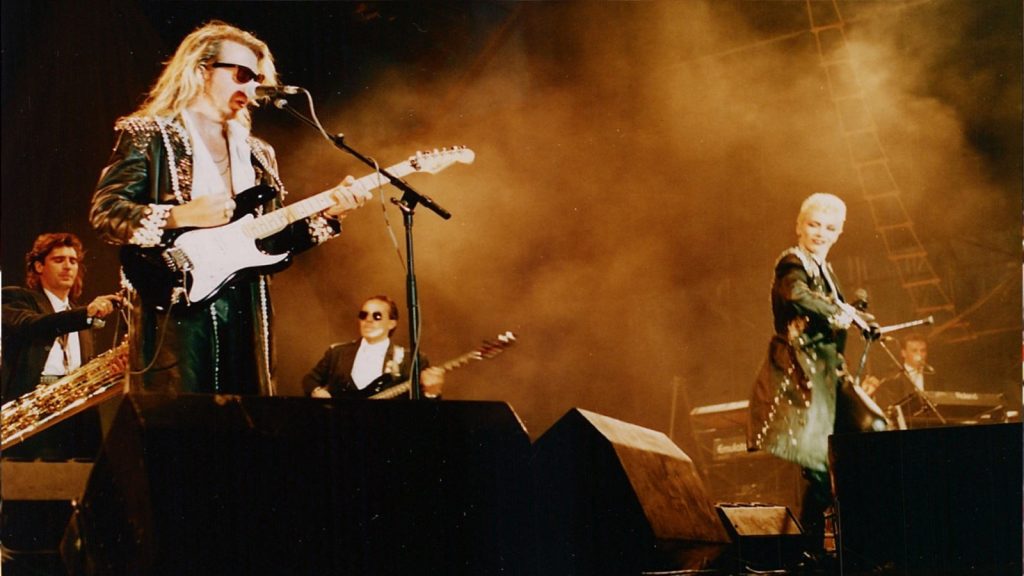
The partnership of Annie Lennox and Dave Stewart produced some of the most innovative pop of the 80s. Lennox’s powerful voice and androgynous image made her one of the decade’s most recognizable stars. “Sweet Dreams (Are Made of This)” remains their signature hit. The Eurythmics’ blend of electronic experimentation with soulful vocals created a unique sound that bridged the gap between synth-pop and more traditional rock. I saw them live in concert in 2000 – the Peacetour, and it was astonishing. The best concert I’ve ever been to. Beautiful, powerful – awesome!
The Specials
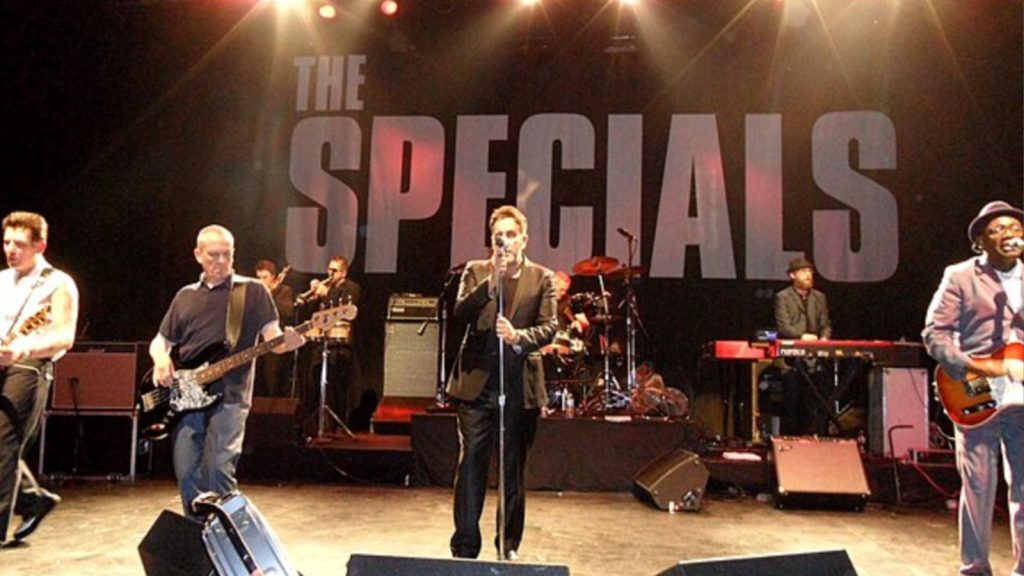
The leaders of the 2 Tone ska revival brought a political edge to the dancefloor. Their multicultural line-up reflected the changing face of Britain. “Ghost Town” captured the mood of a nation in crisis and topped the charts during the 1981 riots. The Specials’ fusion of ska, punk, and social commentary created a soundtrack for a turbulent era in British history.
16 American Foods Brits Can’t Stand
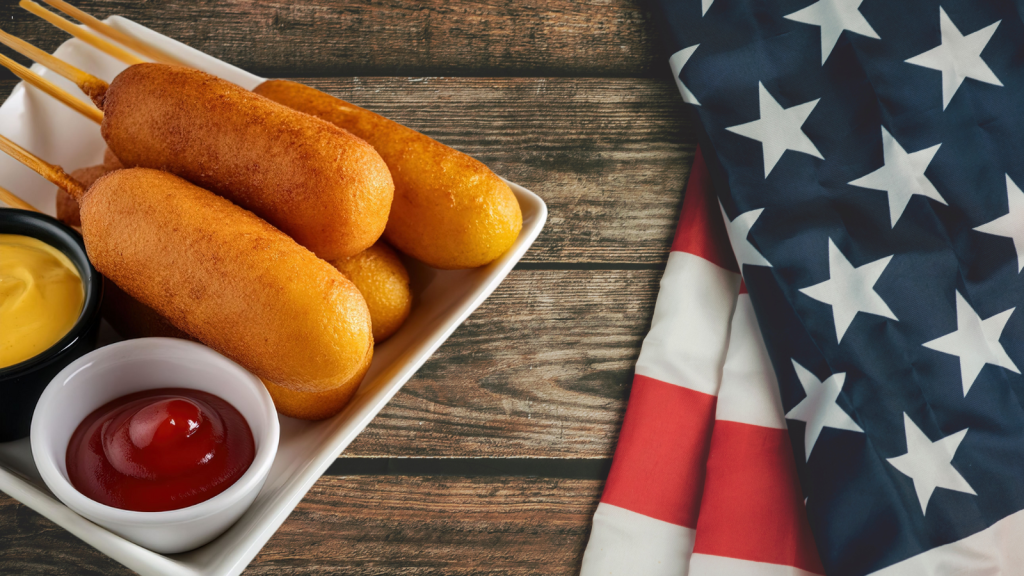
Food preferences can vary wildly across cultures, and what’s considered a delicacy in one country might be seen as downright bizarre in another. This cultural divide is particularly evident when comparing American and British cuisines. While the two nations share a common language, their tastes in food can be worlds apart. From overly sweet concoctions to processed cheese products, there are certain American foods that many Brits find hard to stomach.
Read More: 16 American Foods Brits Can’t Stand
Katy Willis is a writer, master herbalist, master gardener, and certified canine nutritionist who has been writing since 2002. She’s finds joy in learning new and interesting things, and finds history, science, and nature endlessly fascinating.
